Skroutz Buyers Protection
Έχει δίκιο η πατρίδα μου; Η προπαγάνδα των βαλκανικών κρατών (1821-1923)Code: 325259
- Author: Ivan Ilchev
- Publisher: Epikentro
- Μορφή: Soft Cover
- Έτος έκδοσης: 2011
- Αριθμός σελίδων: 624
- Κωδικός ISBN-13: 9789604582037
- Διαστάσεις: 24×17
Ivan Ilchev
Similar products
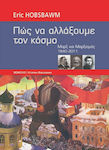
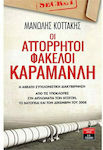 Top rated
Top ratedPolitical Books
Οι Απόρρητοι Φάκελοι Καραμανλή, The Unseen Shocking Governance
Ad from Xryso FteroAdded Top rated
Top rated
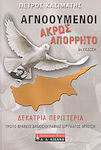
Political Books
Αγνοούμενοι: Άκρως απόρρητο, Δεκατρία περιστέρια: Οι τελευταίοι επιζώντες αγνοούμενοι της Κύπρου: Οι μυστικές αποστολές σωτηρίας τους
Ad from Xryso FteroAdded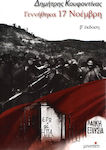
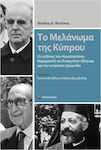
 Top rated
Top rated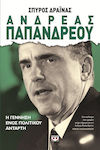


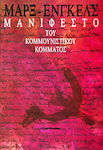
All shops
Prices are calculated for:Malta, Other Payment Options
- 18,20 €
- 28,20 €
- 29,00 €
- 38,27 €
Description
The present study by Bulgarian historian Ivan Ilchev describes the propagandistic mechanisms created by the Balkan states, from their establishment to the end of World War I, in order to influence the global public opinion - especially the European one - about the justice of their arguments and struggles. Ilchev uses various archival material and an extensive bibliography to reconstruct and analyze the mechanisms of propaganda tactics. It is interesting to observe the large sums of money that interested parties allocated, both domestically and internationally, to form groups sympathetic to their views, composed of politicians, diplomats, historians, geographers, and journalists. Secret funds from the respective Ministries of Foreign Affairs were used to recruit influential individuals who influenced the policies of the Great Powers and shaped public opinion in foreign capitals, as well as to coordinate the actions of student organizations and associations of migrants and refugees. The struggle intensified, particularly after the Crimean War and during the Eastern Crisis.
As the author aptly states: "The result of propaganda in the Balkans was tragic. The propagandists deepened the gap between peoples. They exaggerated and perpetuated existing negative stereotypes. In the name of their countries' national interests, as they themselves understood them, persistently and tirelessly, working endless hours away from the public eye, they severed even the weakest and most delicate bridge to mutual understanding. This represents one of the greatest dangers of propaganda in foreign policy. Because the seeds sown decades ago bear poisonous fruits now, while violence casts its heavy shadow."
Specifications
- Format
- Soft Cover
- Number of Pages
- 624
- Publication Date
- 2011
- Dimensions
- 24x17 cm
Important information
Specifications are collected from official manufacturer websites. Please verify the specifications before proceeding with your final purchase. If you notice any problem you can report it here.








































